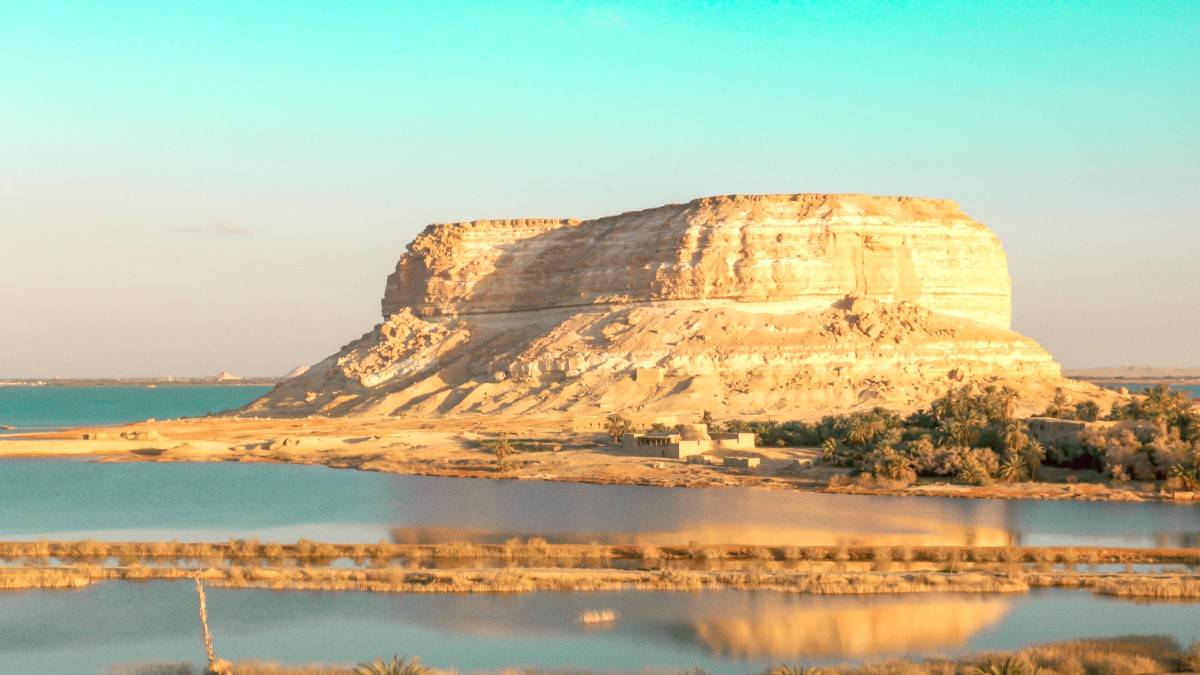
Western Desert, Egypt
Siwa is a delicate oasis ecosystem. Conservation efforts focus on preserving its limited water resources and protecting extensive palm groves. The Great Sand Sea requires careful management.
Waste management infrastructure in Siwa is basic, and recycling facilities are limited. Plastic waste poses a threat. Minimize the waste you generate by avoiding single-use plastics.
Water is a precious and limited resource. The oasis relies on underground aquifers, and over-extraction causes concern. Be mindful of your water usage during your stay.
Interacting respectfully with the Siwi people and their unique culture forms the basis of responsible travel.
Many local initiatives focus on preserving the Siwan language, traditional crafts (like embroidery and silver jewelry), and unique architectural styles. These efforts help maintain the distinct identity of the community. Support these efforts by learning about the culture through the Siwa House Museum, visiting local workshops, and engaging respectfully with artisans. Learning a few words of Siwi or Arabic (like "Shukran" for thank you) goes a long way in showing respect and fostering positive connections.
Be especially sensitive when photographing women and children. Always ask first, and accept a "no" gracefully. Avoid intrusive photography that makes people uncomfortable. Remember that Siwa is a living community, not a set for your photos. Prioritize respectful engagement over capturing every moment. When visiting mosques or other religious sites, dress modestly (shoulders and knees covered for both men and women). Women should carry a scarf to cover their heads if entering a mosque. Remove your shoes before entering mosques. Maintain a quiet and respectful demeanor. Do not disrupt prayers or religious observances.
Siwa is a leader in eco-tourism in Egypt. Many accommodations use traditional, sustainable materials. Support these properties for positive contributions to sustainability.
Book Eco-Friendly StaysChoose tour operators who practice responsible desert tourism by minimizing environmental impact and respecting local flora and fauna.
Explore Ethical ToursYour conscious choices contribute directly to Siwa's ecological well-being and cultural vitality.
Support local businesses and communities directly with your travel choices.
Many guesthouses, local businesses, and tour services in Siwa are owned and operated by Siwan families. Prioritize staying in locally-owned guesthouses or eco-lodges, eating at local restaurants, and buying directly from local artisans and small shops. This keeps money within the community. Seek out handicrafts that are genuinely made locally by Siwan artisans. When bargaining for souvenirs, do so politely and with a smile. Be willing to pay a fair price for genuine artisan work, recognizing the time and skill involved. Look for co-operatives or shops that clearly state their commitment to fair wages for artisans.
Avoid tours or activities that exploit animals (e.g., camel rides if the animals appear mistreated or overworked). Do not give money directly to begging children. This may encourage begging and discourage school attendance. If you wish to contribute, donate to reputable local charities or support community development initiatives that address underlying needs. If you feel compelled to contribute financially, identify local schools, health clinics, or community development projects. Your reputable guesthouse or tour operator can often provide advice on genuine local causes that make a positive impact.
Reduce your environmental footprint with sustainable products. Choose items that minimize waste and support eco-friendly production methods.
Find alternatives to single-use plastics at stores like Package Free Shop.
Compensate your travel emissions through providers like Terrapass.
Purchase durable and sustainably made outdoor gear from brands like Patagonia.
Beware of activities that exploit animals or human vulnerability. Your responsible choices protect the community and its resources.
Support conservation efforts through organizations such as The Rainforest Site (GreaterGood), which often have online stores.